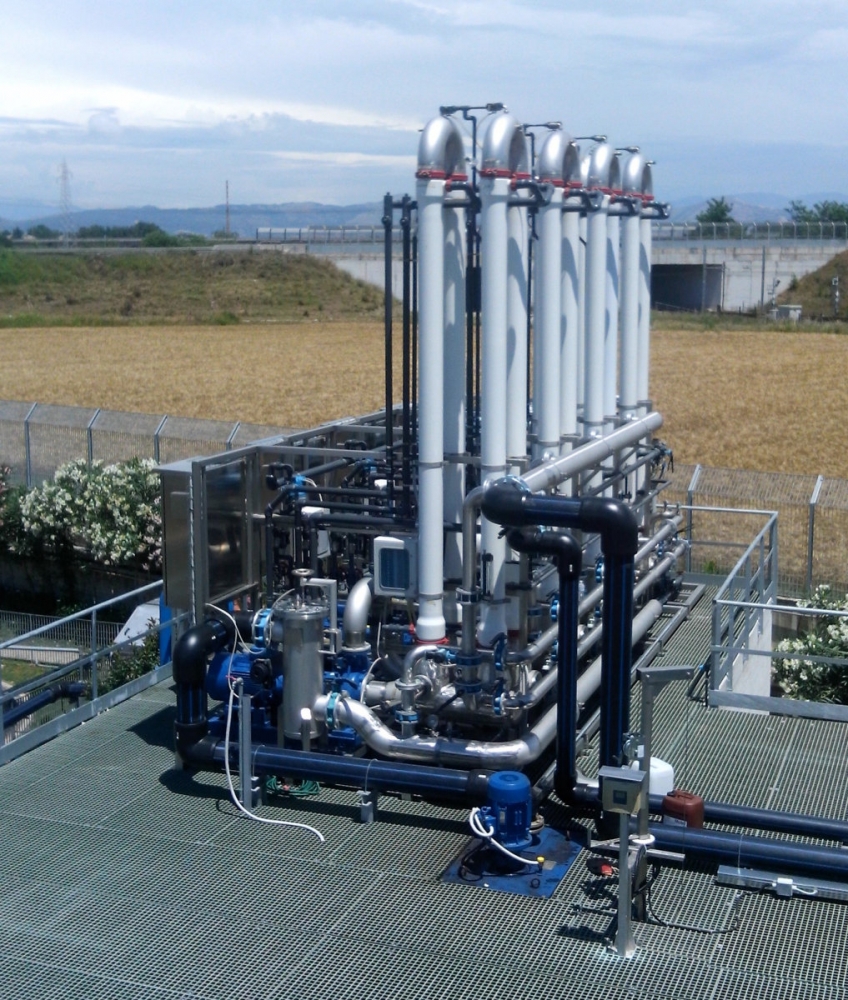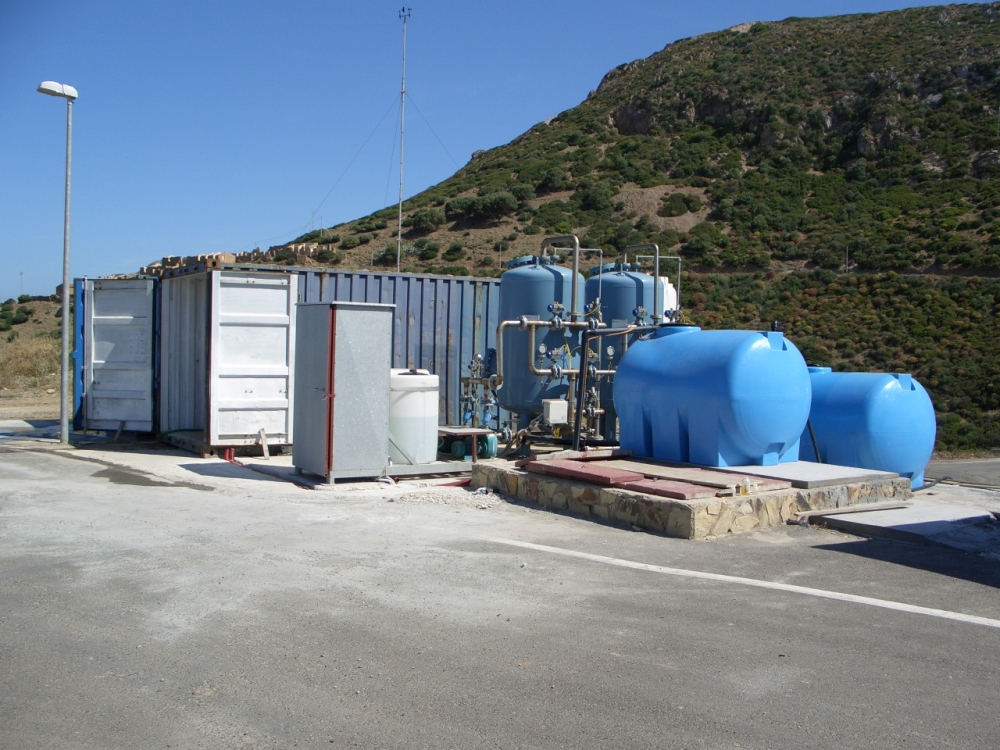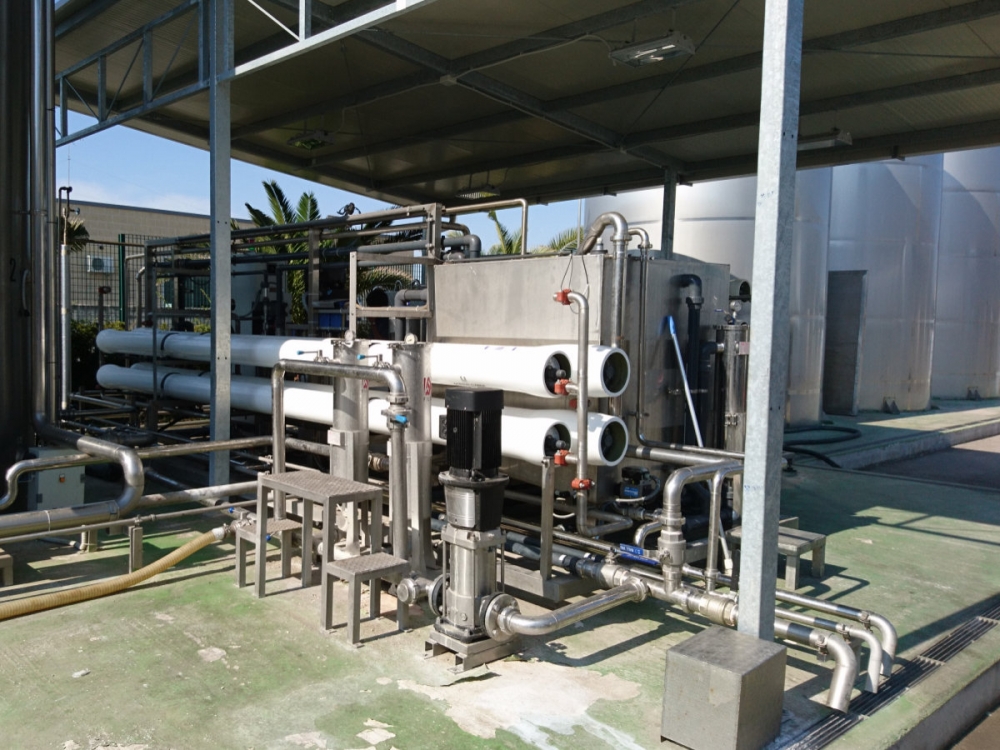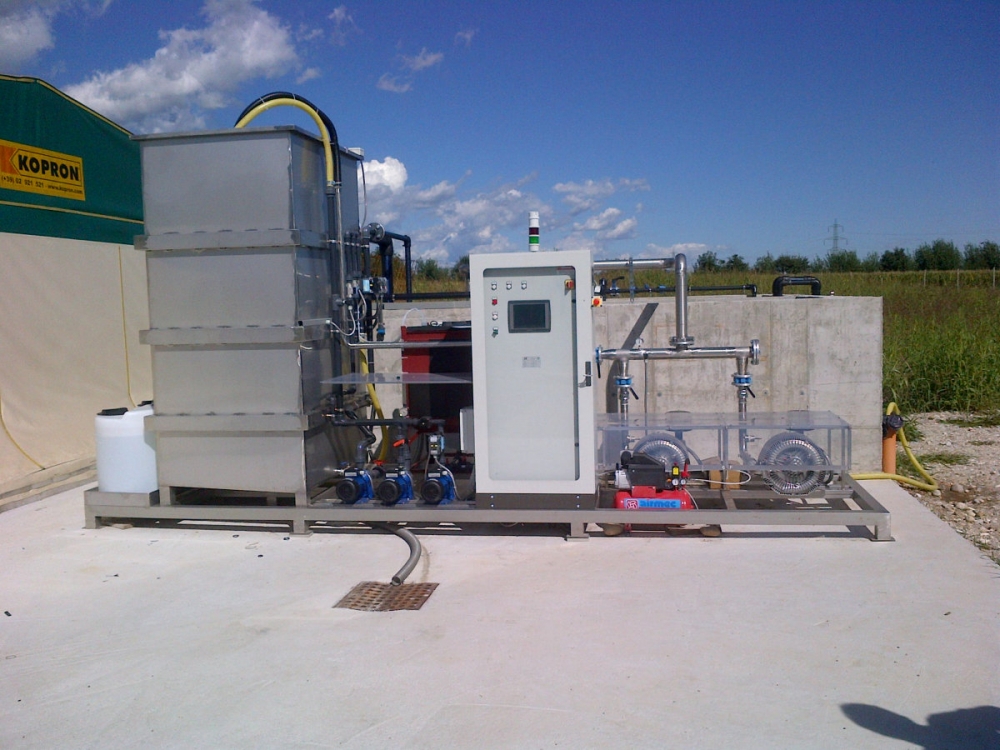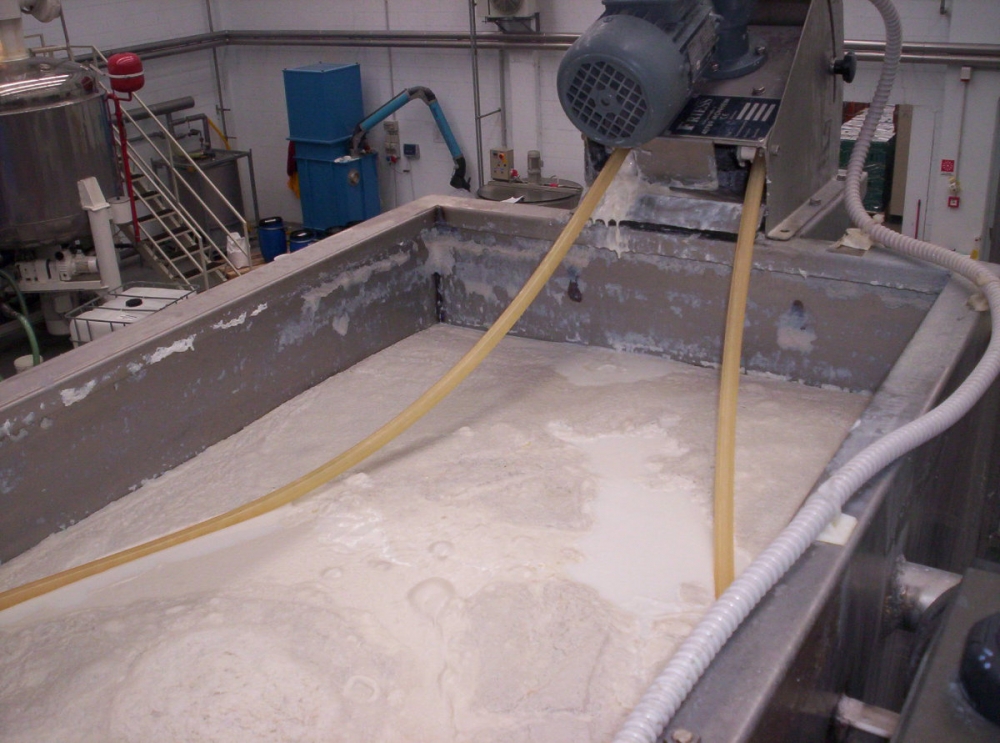Waste water treatment plants
Waste water treatment plants
Starting in the 1990’s, and receiving a boost in the beginning of the new century, membrane separation technologies have made an affirmative entrance in the treatment of waste waters. They can be combined with traditional biological treatments (which is the case for ultrafiltration with MBR technologies) but also with direct filtration (ultrafiltration, nanofiltration, reverse osmosis).
The main goal of membrane separation technologies for purification is to improve effluent quality, ultimately aiming to reuse the purified waters. In vision of an increasingly advanced development in sustainable production, linked to a circular economy logic, membrane separation technologies play a key role in the optimisation of resources.
T.A.srl benefits of 30 years of experience in this field: it can therefore support the industry in modernisation, in respect of current regulations, and suggest the development of new opportunities.
Purification plants: different applications
We work with applied technologies connected to purification in different aspects, among which we recall biological membrane reactors (MBR’s) which derive from the combination of traditional suspended biomass processes and filtration that makes use of microporous or ultraporous membranes. The advantage of membrane technology lies in the possibility of eliminating the sedimentation unit downstream of the biological compartment, along with its relative management and operational limitations. This will permit a reduction in bulkiness of the purification plant, more space available for other plants and a higher filtration efficacy compared to the traditional purification plant based only on mud decantation. These innovative plants thus enable an increased purification capacity of the systems and a reduction of the mud to dispose of.
Among the different types of membrane purification applied by our firm are:
- Membranes for submerged installation in the oxidation tank
- Membranes for external installation to the oxidation tank
- Hollow fibre or tubular polymeric membranes
We also take care of the development of purification plants for the treatment of liquid waste. When speaking of treatment on percolate we mean the processes that take place in treatment of liquids originating from the infiltration of water in the waste masses. Landfill sites produce percolate deriving from solid urban waste which is full of organic and inorganic contaminants. The waters to be treated are a mixture of oils, tensides, hydrocarbon traces, dissolved salts and various organic compounds. In compliance with the European regulations, the aim of purification treatments of waste waters consists in reducing volumes prior to reintroducing the pollutants into the landfill. The purified water, free of salts, is then reused in the industrial production cycle for washing or disposed of in compliance with regulations.
Purification plants also concern the treatment of first rain waters. Increasingly strict regulations call for a treatment of rainwaters that are quantified considering a height of 5mm of rain on the surface. Such waters must be purified through one or more accumulation and sedimentation tanks in order to remove oils and hydrocarbons. Excess waters are sent directly to the plant exit via a piping system.
T.A.srl has for years been involved in quenching and tempering, such as the purification treatment for waters originating from polluted soil. The prevailing pollutants in soils are hydrocarbons, metals, salts, aromatic solvents of different sorts etc. and this often occurs in areas surrounding highways or in deposits for automotive fuels. Seen the vast range of possible interventions in this field, T.A. offers different treatments and plants in order to adapt this type of technology to all needs.
We also specialise in the application of oil removal systems with the task of removing oily residues from the surfaces of any water body. This takes place via a floating piping system to which the oil adheres. The tube then passes through a ceramic scrubber which will free it of the oil, sending it to a tank for collection. Filtration and oil removal are an important treatment since they guarantee a longer duration of emulsions, reduction of odours caused by reduced oxygenation and elimination of fumes that develop from the oils burning in contact with utensils. Liquids such as water and oil can then easily be separated with a stainless steel filter, which is also washable and can thus be reused.
Thanks to its specialised technical personnel T.A. will evaluate with you the feasibility of a purification system, finding the most suitable solution for your needs.
Discover all our applications and designs for purification plants:

We study the most suitable solution for your company.
